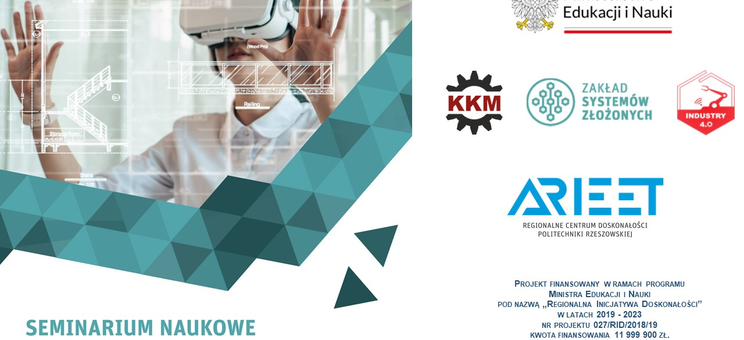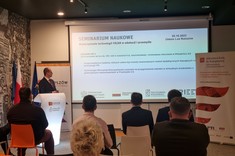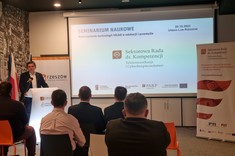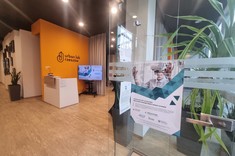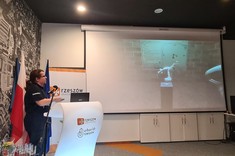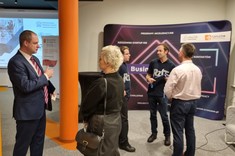On 20.10.2023, a scientific seminar was held in Rzeszów, entitled, "The use of VR/AR technology in education and industry." The seminar was organised at the Urban Lab in Rzeszów, which provides a space for developing innovative solutions and ideas and then supporting their implementation to improve the quality of life in its various aspects. Thus, the Urban Lab provides an excellent venue for the exchange of knowledge and experience in education between different communities, as well as for discussions in the area of the application of modern tools in the teaching process.
The seminar was organised by the Department of Complex Systems and the Department of Mechanical Engineering at the Rzeszów University of Technology, alongside the Industry 4.0 National Cluster, with the Sectoral Competence Council for Telecommunications and Cyber Security as the content partner. The Department of Complex Systems was represented by Andrzej Paszkiewicz, Ph.D., Marek Bolanowski, M.Sc., and Mateusz Salach, M.Sc.
The seminar focused on the development of virtual and augmented reality technologies, which enable the creation and implementation of modern teaching methods and tools. VR and AR are extremely promising technologies that allow, among other things, the development of training environments in virtual space with potential applications in Industry 4.0. These technologies enable hands-on experience in a safe environment. Moreover, interactive and fascinating experiences in VR often encourage more engaged and therefore effective learning. An undoubted advantage of using VR and AR technologies is the possibility to tailor learning materials to the needs of specific individuals, taking into account different levels of difficulty and content coverage. An equally important feature of such solutions is the provision of realistic simulations of events, processes and technologies. The use of VR or AR in teaching processes can be targeted at different levels of education, including the training of workers in industry.
The seminar presented modern solutions using VR technologies for teaching, among other things, the basics of digital techniques in an environment equipped with gamification elements. Another topic discussed was the use of VR technology in the process of educating engineers for the aerospace and automotive (CNC) industries. An important aspect of the seminar turned out to be the VR environment as a modern teaching tool in the process of improving the competences of network engineers. The presentations on the application of VR and AR in the laboratory and industrial environment, among others with regard to the control and steering of arm robots and 3D printers, were of great interest.
After the presentation part, a discussion was opened with representatives from universities, experts from the Telecommunications and CyberSecurity Competence Sector Council, local government representatives, industry specialists, and students. The final part of the seminar consisted of demonstrations and displays of selected VR and AR solutions.




